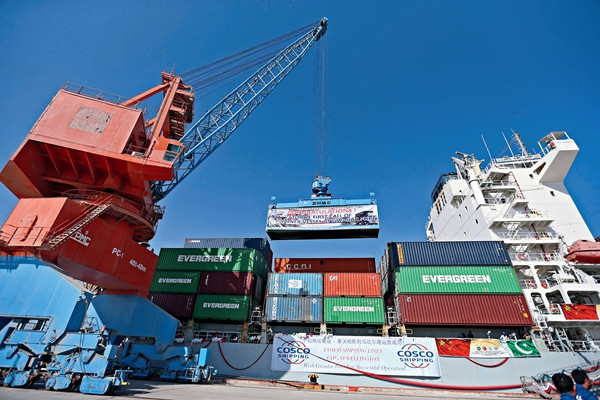The limitations of China's exports to and specificity of its imports from countries along the routes underline the huge potential for production capacity cooperation in the region. According to Zhang Qizi, chief editor of the report and a researcher at the Institute of Industrial Economics, China and other countries along the Belt and Road possess strong low-end industry complementarity, but their complementarity is relatively weak in high-end industry. This presents the new task of enhancing cooperation between China and other countries in order to raise the developmental level of their high-end industry and enhance complementarity in this regard.

Zhang holds that expanding the scale of trade is not simply a matter of grabbing other countries and regions' market shares, but rather of enlarging the market and achieving cooperation and mutual benefits along the Belt and Road.
International Capacity Cooperation
International production capacity cooperation is foremost in promoting construction of the Belt and Road. Overseas economic and trade cooperation zones have become development platforms for Chinese enterprises to conduct competitive industry cooperation, such as in autos, motorcycles, machinery, electronics, chemical engineering, textiles, and clothing. On the other hand, these cooperation zones will attract more Chinese enterprises to invest and build plants in host countries. This will increase employment, generate revenue, earn foreign exchange through exports, and also vigorously propel their industrialization process and industrial upgrading.
According to the plan, the future development of the Belt and Road includes nine economic corridors, as well as more than 20 major industrial parks in countries like Kazakhstan, Malaysia, Indonesia, and Singapore.
The Gwadar Port Free Zone in the China-Pakistan Economic Corridor is one such project. The overseas branch of the Linyi Shopping Mall is located there. The cornerstone laying ceremony for the shopping mall project, with a total investment exceeding RMB 250 million, was held in May 2016. Covering an area of 20,000 sq m, the first-stage project consists of the storage and exhibition of products such as building and ornamental materials, engineering machinery, hardware, labor protection appliances, and daily-use articles at construction sites. The second-stage project will be a logistics park, entailing an entire construction cycle of four to seven years. The zone will in future be an exhibition and trading center for Chinese commodities, a logistics center for Chinese commodities exported to South Asia, the Middle East and Central Asia, the Linyi Shopping Mall's overseas production and processing base, and the direct supply base for imports to Pakistan and the Middle East.


















































